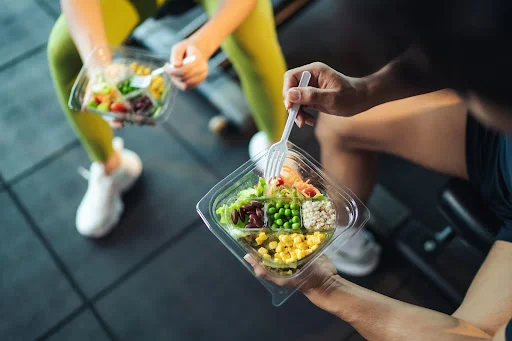Index Surge: Amplifying Your Insights
Stay updated with the latest trends and news across various industries.
Bulk It Up: Feast Your Way to Gains
Unlock your muscle-building potential! Discover mouthwatering meal tips and recipes to bulk up and achieve your fitness goals. Dive in now!
Top 10 High-Calorie Foods to Include in Your Bulking Diet
When it comes to building muscle and gaining weight, high-calorie foods are essential to include in your bulking diet. These foods provide the necessary energy and nutrients for effective workouts and recovery. Here is a list of the top 10 high-calorie foods that can help you achieve your bulking goals:
- Nut Butters
- Avocados
- Whole Eggs
- Oily Fish
- Dried Fruits
- Full-Fat Dairy
- Red Meat
- Dark Chocolate
- Granola
- Quinoa
Incorporating these foods into your meals and snacks will not only enhance your calorie intake but also provide a wealth of health benefits. For example, nut butters are not only high in calories but also rich in healthy fats and protein, making them a perfect addition to smoothies or as a spread on whole-grain bread. Similarly, oily fish like salmon and mackerel offer omega-3 fatty acids that promote heart health while delivering plenty of calories.

The Science Behind Bulking: How to Safely Increase Muscle Mass
Bulking is a term commonly used in the fitness community to describe a phase where individuals aim to increase muscle mass through a combination of resistance training and a caloric surplus. The science behind this process involves understanding how different macronutrients—proteins, carbohydrates, and fats—work together to support muscle growth. Proteins play a crucial role, providing the amino acids necessary for muscle repair and synthesis. In a typical bulking diet, individuals often target a caloric intake that exceeds their maintenance needs by about 500 calories per day, which can lead to a gradual weight gain of about 0.5 to 1 pound per week.
To safely increase muscle mass, it's essential to follow a structured approach that combines quality nutrition with progressive strength training. This involves not just stuffing every meal with food, but rather focusing on nutrient-dense options that provide your body with the essential vitamins and minerals it needs. Incorporating whole foods such as lean meats, whole grains, and healthy fats into your diet can significantly enhance the effectiveness of your bulking phase. Additionally, paying attention to recovery and ensuring you get enough sleep will optimize your muscle-building efforts. Remember, consistency is key, and a well-planned strategy can lead to impressive muscle gains without excessive fat accumulation.
Meal Prep Tips for Maximizing Your Bulk: A Beginner's Guide
Meal prepping is a powerful strategy for those looking to maximize their food budget while minimizing cooking time during the week. By preparing meals in bulk, you can ensure that you have healthy options ready to go, helping you stay on track with your dietary goals. Meal prep tips for beginners include starting with simple recipes that can be easily multiplied. Consider dedicating one day a week, such as Sunday, to cook and portion out meals for the upcoming week, allowing you to enjoy variety without the daily hassle of cooking.
When it comes to maximizing your bulk, organization is key. Invest in quality storage containers that are stackable and airtight to keep meals fresh. It's also beneficial to create an inventory checklist of what you have prepped each week; this not only prevents food waste but also helps with planning meals around your available ingredients. Incorporating a mix of proteins, grains, and vegetables will ensure a well-rounded diet and keep your meals exciting. Remember, the goal is to prepare in a way that saves time, money, and ensures you have wholesome meals at your fingertips.